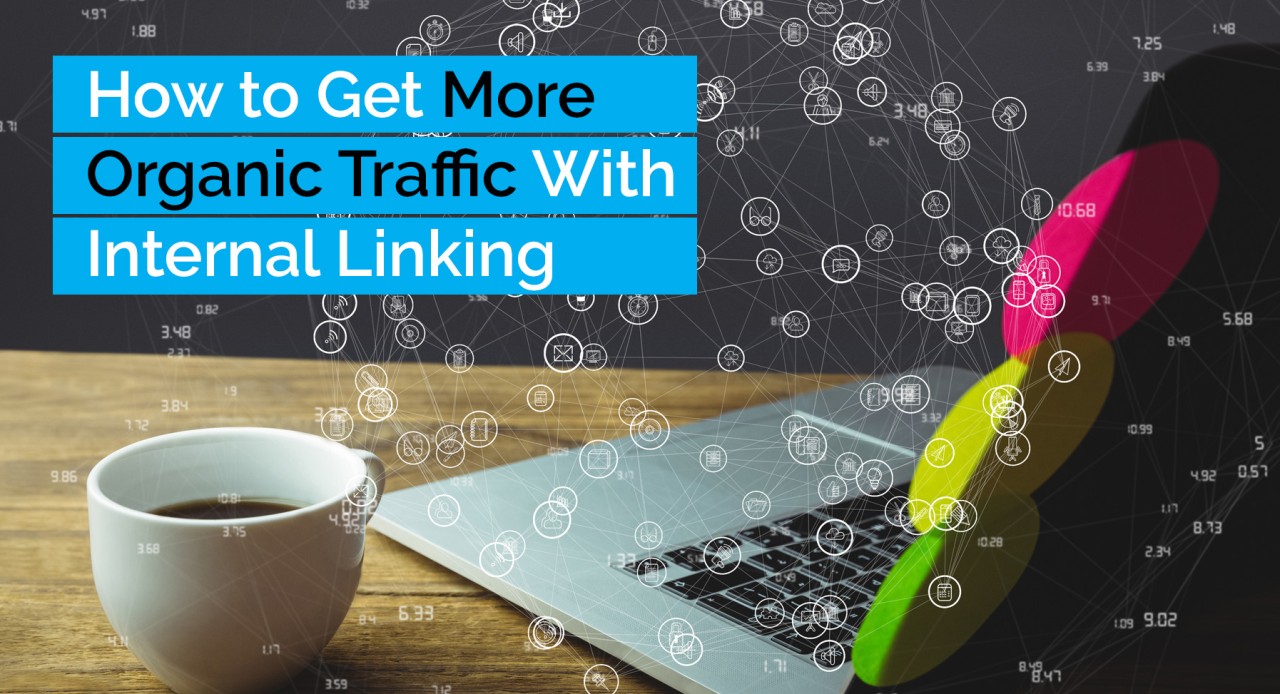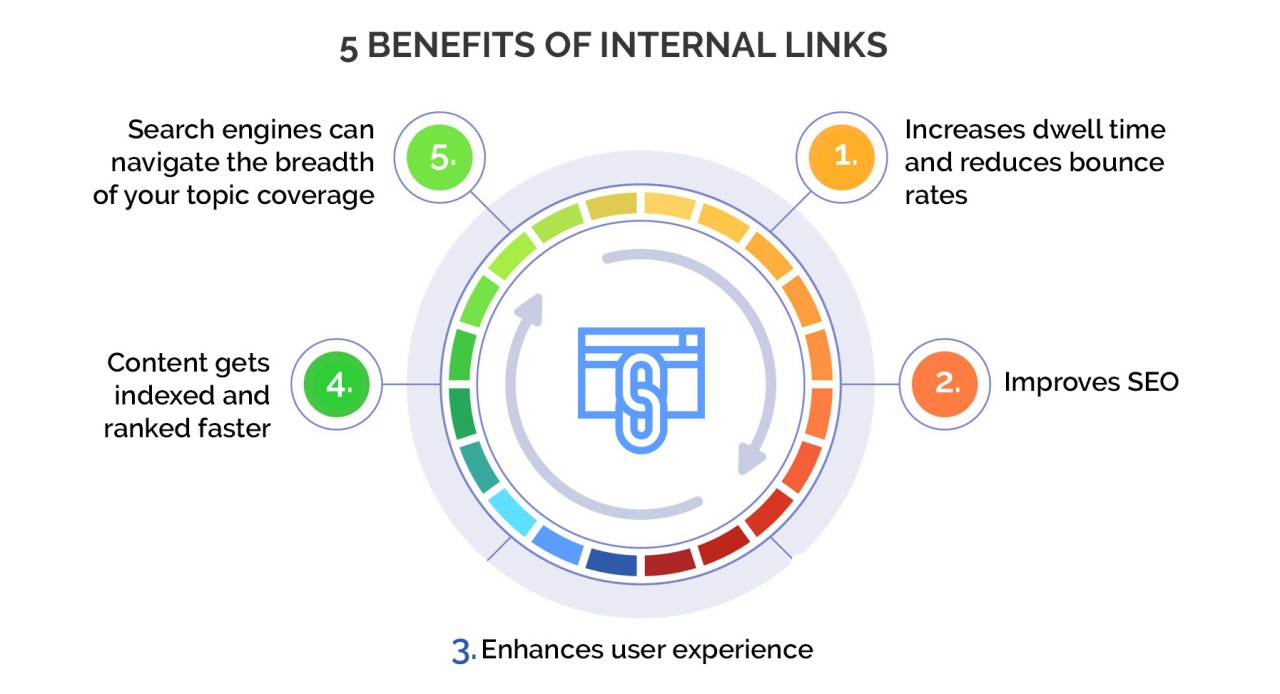
Are you struggling to get more organic traffic to your website? While there are plenty of tactics that can help, one of the most effective ones is often overlooked: internal linking. Internal linking is an incredibly powerful SEO strategy that connects pages on your own website together.
By creating these relevant links, you not only make it easier for visitors to navigate your site, but also improve its structure and potentially boost your organic rankings in search engine results pages.
In this blog post, we'll take a look at what internal linking is and how you can use it to get more organic traffic. We'll cover everything from the basics of adding internal links to more advanced strategies, such as leveraging anchor text and tracking click rates.
So read on if you're ready to start getting better results from your online content!
The Purpose of Internal Linking
Search engines use the links between pages on your website to determine the structure of your site and the relationships between pages. This helps them understand what each page on your site is about and how it relates to other pages on your site.
- The purpose of internal linking is to help search engines understand your website so they can deliver more relevant results to users when they search for something.
- Internal linking also has SEO benefits. When done correctly, it can help search engines find and index more of your website's content.
- It can also help distribute link equity (ranking power) throughout your website, which can boost the overall SEO of your site.
- Finally, internal linking can help improve the user experience on your website.
By linking to related content, you can keep users engaged on your site and reduce bounce rates. Internal linking can also help people find the information they're looking for more easily, which can improve satisfaction levels.
The Theory Behind Internal Linking
Internal linking is one of the most powerful tools you can use to improve your website's SEO. By linking to other pages on your website, you can help search engines find and index all of your content more easily. Internal linking can also help boost your organic traffic by giving users more ways to find the information they're looking for on your site.
When it comes to internal linking, there are a few key things to keep in mind:
1. Use keyword-rich anchor text: When you link to another page on your website, be sure to use keywords in the anchor text. This will help tell search engines what that page is about and will help improve your SEO.
2. Link often: The more links you have on your website, the better. Try to link to other pages as often as possible, especially from high-traffic pages like your home page or blog.
3. Use relevant links: Only link to pages that are relevant to the content on the page you're linking from. This will help ensure that users are finding the information they're looking for and that search engines are indexing only relevant pages.

Why are links important to Google?
Links are one of the most important ranking factors for Google, so it's important to make sure your website is linked properly. Google looks at both the quality and quantity of links when determining where to rank your website in search results.
To make sure your website is getting the most benefit from links, pay attention to the anchor text (the text that is hyperlinked) and make sure it is relevant to what you want to rank for. For example, if you have a blog about dog training, then you would want the anchor text of any links pointing to your website to include keywords like "dog training" or "how to train your dog."
In addition to paying attention to the anchor text, also focus on getting high-quality links from websites that are relevant to yours. Google puts more weight on links coming from websites that are in the same niche as yours. So, if you have a blog about dog training, then you would want to get links from other dog-related websites. You can find potential link partners by doing a Google search for your target keywords + "resources" or "links."
Finally, don't forget about internal linking! This is when you link to other pages on your own website. Internal linking is important because it helps spread link equity (link juice) around your website, which can help all of your pages rank better in search results. Plus, it makes it easier for users to find what they're looking for on your website.
Setting up an internal linking strategy:
There are a few things you can do to set up an internal linking strategy on your website:
1. Analyse content: First, analyse the content on your website and determine which pages need to be linked together. You should consider what topics are related and which pieces of content can benefit from interlinking.
2. Track keywords: Once you have identified the pages that need to be linked, track relevant keywords associated with each page in order to create more effective internal links.
3. Create anchor text: When creating an internal link, use descriptive anchor text that accurately conveys the topic of the page it's linking to and provides context for readers.
4. Monitor performance: Finally, monitor the performance of your internal links using analytics tools like Google Search Console or Google Analytics to ensure they are working as intended and providing value to your audience.
5 Benefits of Internal Links
Internal links help spread link equity (link juice) around your website, which can help all of your pages rank better in search results.
1. Increases dwell time and reduces bounce rates: Internal links allow users to navigate from one page to another within the same domain. This encourages readers to stay longer on your website and increases their engagement.
2. Improves SEO:
Search engine algorithms give more importance to websites that use internal links, as this type of link helps search engines crawl webpages and index content faster. Internal linking also helps create a better structure for your site, which can positively affect its ranking.
3. Enhances user experience:
Internal links allow visitors to quickly find relevant information on your website, providing them with a better overall experience. It also makes navigation more accessible and reduces the number of clicks needed to find specific pages or blog posts on your website.
4. Content gets indexed and ranked faster:
When you create internal links, you are essentially telling Google that your content is relevant to the topic of the page that it's linking to. This helps content get indexed and ranked faster in search results, which can help you attract more traffic.
Search engines can navigate the breadth of your topic coverage:
Internal links allow search engines to navigate the breadth of your topic coverage, which can help them find the content they are looking for more quickly. This is especially important for search engines like Google that use a "topic-based" crawling algorithm.
Conclusion
Internal links are an important part of any SEO strategy and can help your website rank higher in search results. By following these tips, you can set up an effective internal linking strategy and increase traffic and engagement.
This helps both readers and search engine crawlers understand the structure of your website, find relevant content quickly, and even index content faster.
Suggested Read: Must-Know Strategies For Optimising Your Site With Google And SEO Tools

